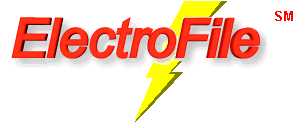
|
Income Tax Service
5200 W Market St
Greensboro, NC 27409
336-852-9505
|
 Terry Hough
Terry Hough
President
|
December 02, 2014
Affordable Care Act
Starting in 2014, everyone is required to have health insurance. This means:
-
If you have health insurance, including Medicare or Medicaid, you're good to
go. You may even qualify for the
Premium Tax Credit
(PTC)
if you bought insurance through the Health Insurance Marketplace.
-
If you don't have insurance, you may have to pay a fee for the months you were
uninsured and didn't have any exemptions.
Exemptions to Paying a Fee
There are several exemptions to paying a fee for not having health insurance,
including the following:
-
You're uninsured for less than 3 months of the year.
-
The lowest-priced coverage available to you would cost more than 8% of your
household income.
-
You don't have to file a tax return because your income is too low.
-
You're a member of a federally recognized tribe or eligible for services
through an Indian Health Services provider.
-
You're a member of a recognized health care sharing ministry.
-
You're a member of a recognized religious sect with religious objections to
insurance, including Social Security and Medicare.
-
You're incarcerated (either detained or jailed), and not being held pending
disposition of charges.
-
You're not lawfully present in the U.S.
Additionally, if you have any of the circumstances below that affect your
ability to purchase health insurance coverage, you may qualify for a hardship
exemption:
-
You were homeless.
-
You were evicted in the past 6 months or were facing eviction or foreclosure.
-
You received a shut-off notice from a utility company.
-
You recently experienced domestic violence.
-
You recently experienced the death of a close family member.
-
You experienced a fire, flood, or other natural or human-caused disaster that
caused substantial damage to your property.
-
You filed for bankruptcy in the last 6 months.
-
You had medical expenses you couldn't pay in the last 24 months which resulted
in substantial debt.
-
You experienced unexpected increases in necessary expenses due to caring for an
ill, disabled, or aging family member.
-
You expect to claim a child as a tax dependent who's been denied coverage in
Medicaid and CHIP, and another person is required by court order to give
medical support to the child. In this case, you do not have the pay the penalty
for the child.
-
As a result of an eligibility appeals decision, you're eligible for enrollment
in a qualified health plan (QHP) through the Marketplace, lower costs on your
monthly premiums, or cost-sharing reductions for a time period when you weren't
enrolled in a QHP through the Marketplace.
-
You were determined ineligible for Medicaid because your state didn't expand
eligibility for Medicaid under the Affordable Care Act.
-
Your individual insurance plan was cancelled and you believe other Marketplace
plans are unaffordable.
-
You experienced another hardship in obtaining health insurance.
If you're applying for an exemption based on: being uninsured for less than 3
months, coverage being unaffordable, membership in a federally-recognized tribe
or eligibility for services through an Indian care provider, membership in a
health care sharing ministry, being incarcerated, or not being lawfully present
in the U.S., you can claim your exemption when you fill out your federal tax
return.
If you're applying for an exemption based on: hardship as explained above, or
membership in a religious sect whose members object to insurance, you must fill
out an exemption application to the Health Care Marketplace and get a
Marketplace exemption certificate to enter on your tax return.
Form to apply for a hardship exemption
Form to apply for a religious sect exemption
If you'd like to purchase your health insurance through the Health Insurance
Marketplace and avoid paying a fee in future tax years, visit
www.healthcare.gov
.
For additional information:
More information about tax penalties for not having healthcare coverage.

 Terry Hough
Terry Hough

 Terry Hough
Terry Hough